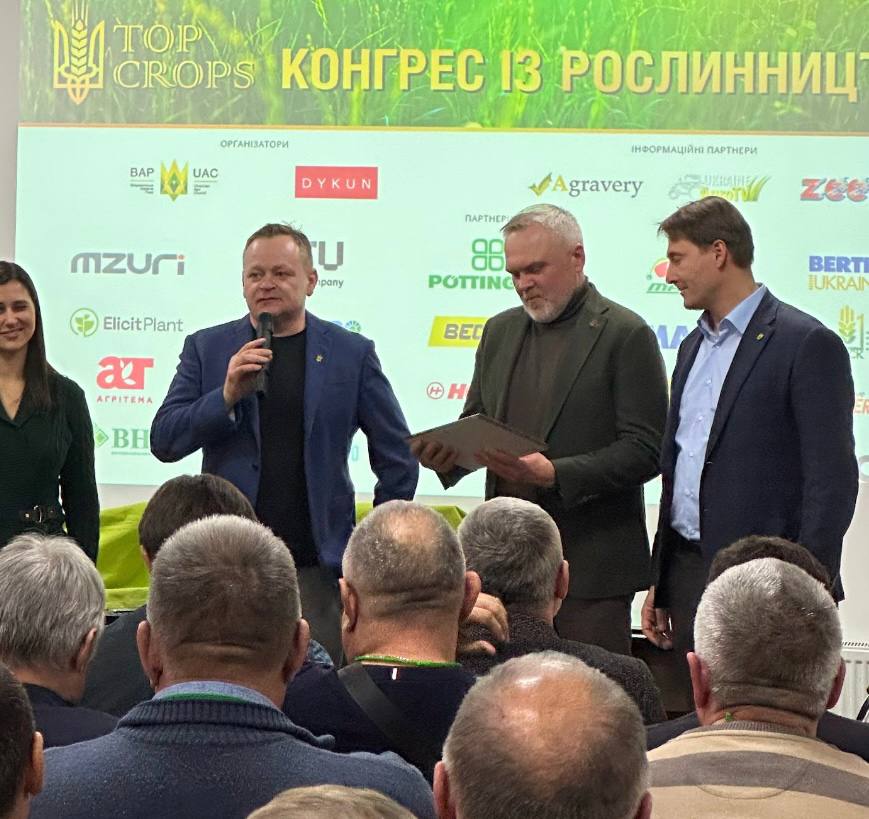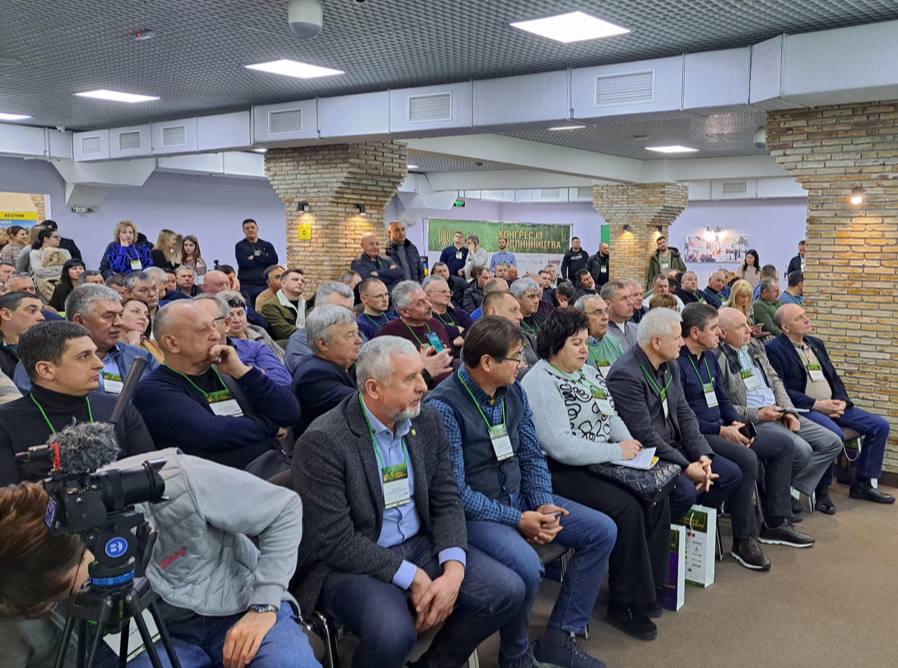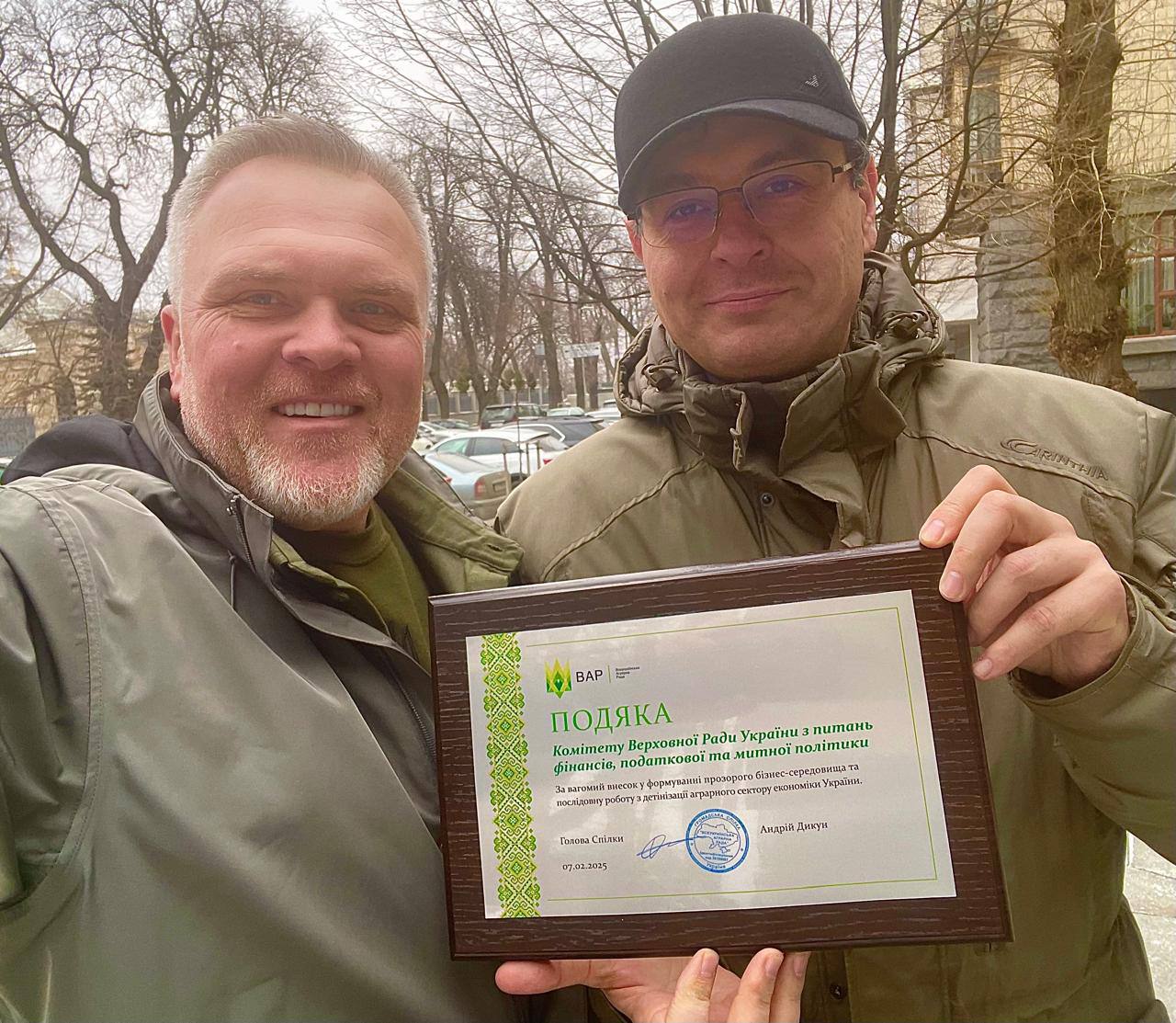During the TOP Crops 2025 Congress, representatives of the agricultural sector, MPs and government officials discussed current challenges for the industry. The key issues included the future of the 4th single tax group, fuel excise tax, extension of reserving periods, state support mechanisms, and the impact of the export control system.
The discussion was joined by Chairman of the Parliamentary Committee on Finance, Taxation and Customs Policy Danylo Hetmantsev, as well as MPs Oleksandr Kovalchuk, Ivan Chaikivskyi, Halyna Yanchenko and Serhiy Labaziuk and Deputy Minister of Agrarian Policy and Food of Ukraine Taras Vysotskyi.

Chairman of the Verkhovna Rada Committee on Finance, Taxation and Customs Policy Danylo Hetmantsev believes that the single tax system of the 4th group will be the same at least until the end of the war. “I guarantee you 100% that it will be the same until the end of the war. After the war, it will be a question for discussion, as the tax system needs to be adapted to EU requirements. Also, the exclusion of legal entities from the simplified taxation system is envisaged in the National Revenue Strategy approved by the Government,” he said.
Danylo Hetmantsev explained that international partners, including the EU and the IMF, insist on reforming the single tax in line with European standards. “This system is not a critical problem for the state now, but it is part of the overall tax system that needs to be changed,” he added. According to the Head of the Tax Committee, the best option for farmers would be to gradually reform and postpone changes until Ukraine joins the EU.
Another important topic raised by Danylo Hetmantsev was the fight against illegal ways of grain exports. He emphasized that the government and tax authorities were already getting positive results from the implemented control system. “We see a large volume of blocked illegal suppliers, which allows legal exporters to work in a transparent environment. The system, which was implemented in December, has not raised any significant complaints yet. However, we are ready for a constructive dialogue on its improvement,” he said and urged farmers to submit their proposals on the functioning of the new control system to avoid bureaucratic obstacles for business.

People's Deputy Oleksandr Kovalchuk noted that the parliamentary committee is working to improve tax policy, including excise taxes. “When we passed the law on raising the excise tax on fuel, we agreed that diesel used by farmers in the fields, rather than on public roads, would have a lower excise tax. The proposed exemption will encourage farmers to do everything legally, as only those who cultivate officially registered land can count on the exemption. As for the minimum tax liability, the new tax shows good results and annually adds billions of hryvnias to the budget, which are needed for defense. The revenues come because of making all payments for land in the agricultural sector legal” he emphasized.
The UAC presented the Verkhovna Rada Committee on Finance, Taxation and Customs Policy with the award “For a significant contribution to the formation of a transparent business environment and consistent work on combating the shadow economy in the agricultural sector”.
Taras Vysotskyi, First Deputy Minister of Agrarian Policy and Food of Ukraine, spoke about the state support programs to be implemented in 2025.
In particular, the Ministry has initiated an extension of the deadline for confirming critical status until March 31 due to the large number of applications for employee reservations. Payments for livestock owners and small farmers continue, but only those who did not take advantage of the program last year can receive funds again. A special fund (UAH 1 billion) has also been set up for livestock, including compensation for the cost of heifers and farm reconstruction, but with mandatory co-financing from local budgets.
There will be programs to compensate for the cost of Ukrainian agricultural machinery (up to 25%), grants for orchards, greenhouses and processing, as well as a demining program that covers 100% of the costs. UAH 200 million has been allocated for irrigation, with up to 50% of the costs covered. The 5-7-9 soft loan program for farmers has been extended until 2026.
The UAC Chairman Andrii Dykun, thanked the people's deputies and government officials for their support of the agricultural sector and emphasized the need for further cooperation: “Today, the agricultural sector is the basis of Ukraine's economic stability. Our main task is to protect producers and create conditions so that they can not only survive but also develop. This requires clear rules of the game, effective support mechanisms and a constructive dialog between business and the state.”
The participants of the event emphasized the importance of coordinated actions by the government, parliament and agricultural associations for the effective implementation of reforms.
